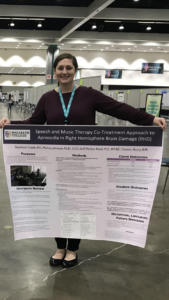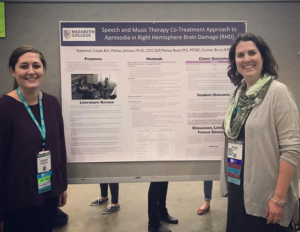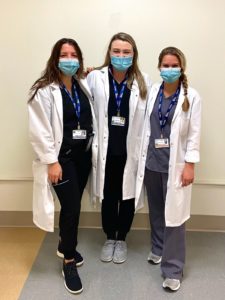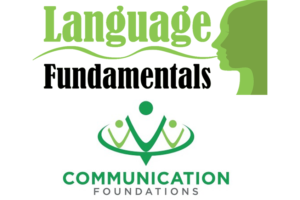During my 2017 Spring semester of grad school, I was a student clinician in the Nazareth College Neurogenic Communication and Cognition Clinic. This on-campus clinic provides speech, language, and cognitive services to individuals with acquired disorders. While I gained experience working one-on-one with clients, I was also given the opportunity to engage in group therapy co-treatment with other disciplines. This included physical therapy, art therapy, occupational therapy, and music therapy. It is here that I gained an additional appreciation for disciplines we often work closely with as Speech-Language Pathologists.
My speech therapy and music therapy co-treatment led to a unique experience working with an individual with Right Hemisphere Brain Damage (RHD). One of the main deficits presented in this client’s case was aprosodia, involving a breakdown in prosodic contours of speech. This affected the client’s linguistic and affective expressive and receptive prosody during conversational speech, with a marked rising pitch at the end of most utterances.
Due to the limited evidence-based literature in the field regarding treatment approaches for aprosodia, my professor, Dr. Melissa Johnson, and I decided to conduct our own research throughout the semester focused on aprosodia secondary to RHD. Throughout the semester our speech and music therapy co-treatment components included:
- Vocal warm-ups
- Unison or client-only singing of familiar songs with musical accompaniment
- Cognitive-linguistic analysis of the prosodic features needed to convey emotion (happy, sad, angry) in semantically neutral sentences
- Drumming exercises targeting rhythmic control
- Oral reading exercises targeting production and self-monitoring of rate and prosody
- Naturalistic conversation to promote generalization


Our findings at the end of the semester between baseline data and post-treatment data showed an improvement in speech rhythm with significant improvement in affective and linguistic prosody. Dr. Johnson and I decided to send a research proposal to the American Speech-Language-Hearing Association to participate in a poster presentation at the 2017 ASHA Convention to share our findings; come Fall 2017, we were off to Los Angeles, California sharing our findings with other professionals from across the country.
The experience I gained both personally and professionally from the co-treatments, the research process, and the poster presentation at ASHA made a huge impact on me as I began my clinical work; knowing that a meaningful and thoughtful treatment plan was successful for the client was also an added bonus! With the many opportunities I have been presented with, I am thankful, and as I now move forward through my Clinical Fellowship Year I hope to continue to make a difference in my patient’s lives while continuing to grow as a professional clinician.
If you have any related thoughts or ideas, we’d love to hear.
About The Author: Originally from Syracuse, NY Stephanie Casale has a Bachelors’s Degree from Nazareth College in Rochester, NY. She is also a graduate of Nazareth’s Speech Language Pathology Program. Stephanie is a Clinical Fellow with Language Fundamentals in Rochester, NY. In her spare time, she enjoys reading, spending time outdoors, and visiting family in her hometown of Syracuse.




Thank you Lovely! xxxNYC house